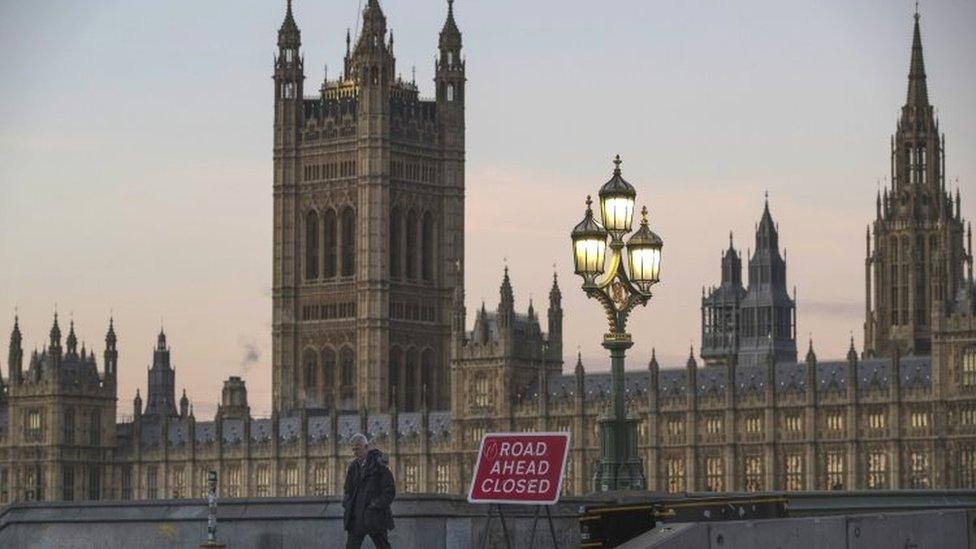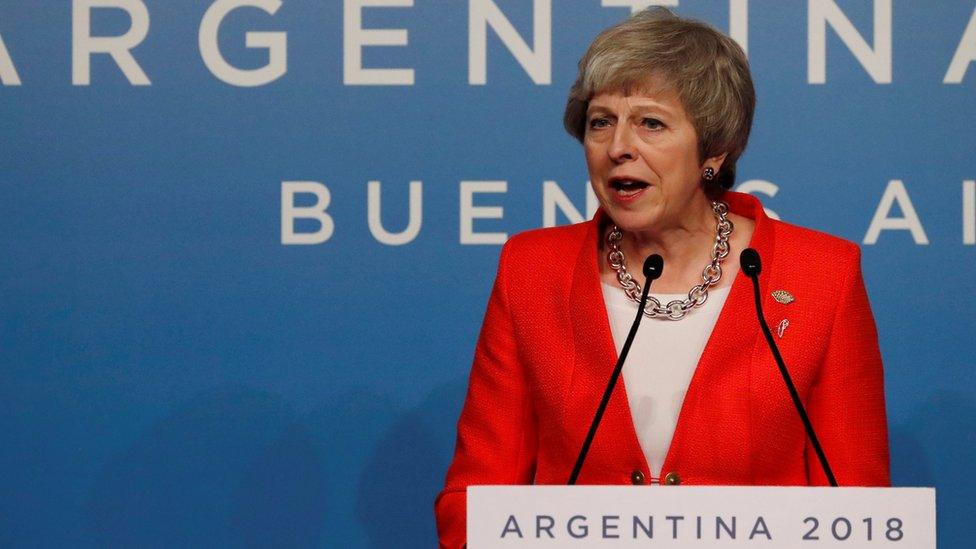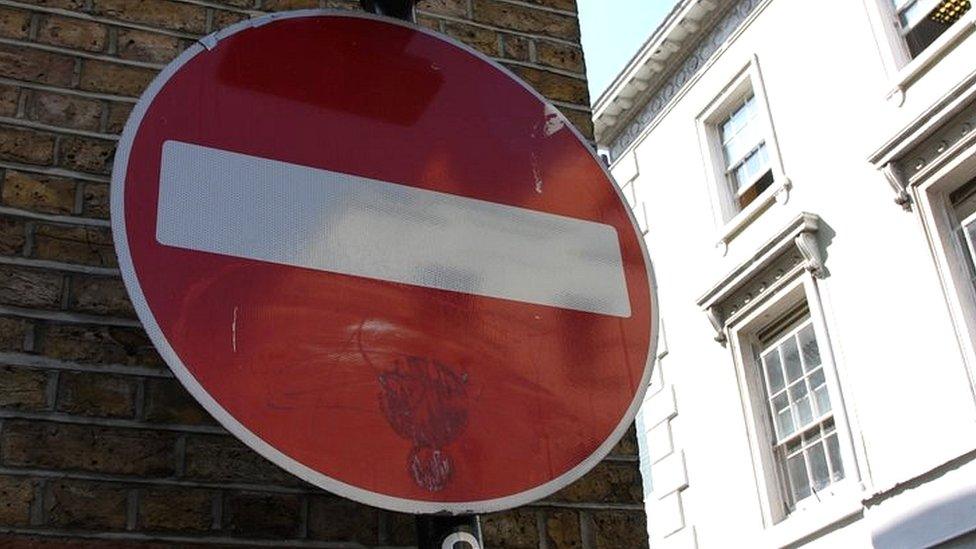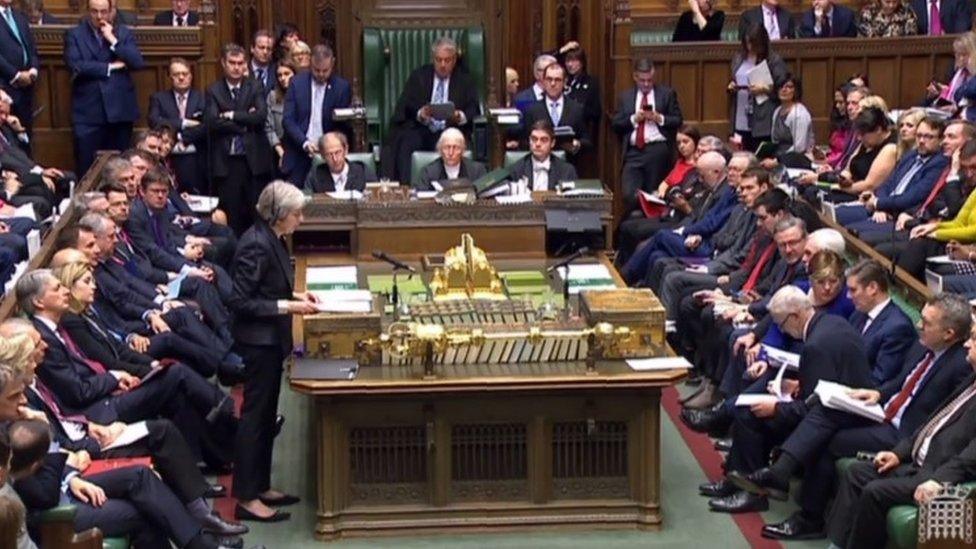Brexit debate: Parliament 'taking back control'
- Published

As MPs begin five days of debate on Theresa May's Brexit deal it looks like the prime minister faces the exact situation she called an election last year to try and avoid.
Whether it is the decision on whether the government is in contempt of Parliament (in other words, in lots of embarrassing trouble for ignoring the demand to publish the full Brexit legal advice), or MPs asking for the right to tell ministers what to do if there is a second attempt by the government to get Theresa May's Brexit compromise deal through the Commons (the attempt by Dominic Grieve today, that could take 'no deal' off the table for good), or what seems now, the likely rejection of Theresa May's agreement with the EU next week, those manoeuvres, those sub-plots in the Brexit drama, amount to one central thing - slowly but surely, Parliament grasping the levers of power - one might even say, taking back control.
To use the posh term, it is the legislature trying to take over the executive, and this is what chills some spines in No 10. With MPs on the Tory benches as well as the opposition looking for ever more arcane ways of tying ministers up in knots, there is a sense whatever happens next Tuesday, what we are seeing is the gumming up of the government, maybe for good.
For many MPs of course, this is a moment, if not to hang out the bunting, to take heart from Parliament's influence, to be reassured about its role, its ability not just to scrutinise legislation, but to make things happen, or more pertinently, to stop them taking place.
But remember, as one government insider put it this morning, "there are no numbers FOR anything" - in essence the idea that the Commons would be able to come together to agree anything quickly on behalf of the country seems optimistic in the extreme.
They'd be able to agree that they should prevent a disorderly 'no deal' exit. The prominent Labour MP, Hilary Benn, is making a formal attempt to guarantee just that.
But beyond that? If the government's plan falls, some MPs will certainly push for another referendum - but a majority for that seems out of reach for now. Some, and there is cross-party support, would try to argue for a Norway-style deal with close economic ties to the EU. There might, just about, be a majority for that.
But that model would not see the UK have total control of its immigration policy. For many, but of course not all, Leave voters, that was the priority in the referendum. It's potentially therefore deeply problematic to go for such an arrangement.
If voters partly voted Leave to demand more say over immigration, what message does Westminster send back to the electorate if they carve up a deal that simply does not do that?
Of course MPs absolutely ought to be voting for what they believe is best, at this huge moment. Some of them may be spooked by the idea of turmoil, or at least on-going confusion.
Many more are poised to make their objections count.
But don't kid yourself that if Parliament takes charge of the process that the situation will become any clearer fast.
By calling the election last year, this kind of Parliamentary mess was exactly what the prime minister was trying to avoid. She had a tiny majority then, and this would have been a hard fight in any case.
But that historic gamble, that she tried and failed, has made this perhaps harder than she could have imagined. With no majority, even tiny numbers of MPs can make a huge amount of noise.
- Published1 December 2018

- Published5 December 2018

- Published30 July 2019

- Published26 November 2018

